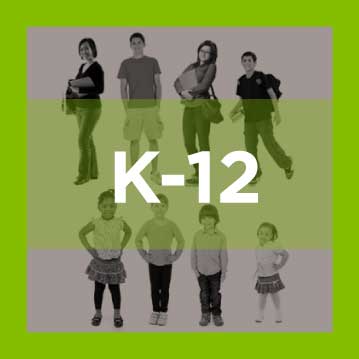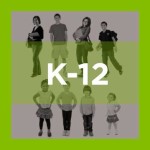This April, in honor of National Autism Awareness Month, autism support organizations such as the Autism Society and Autism Speaks launched initiatives to shed light on Autism Spectrum Disorders (ASD). Expanding awareness for parents and physicians increases the likelihood of early diagnosis and treatment, which can lead to significantly better outcomes for affected children.
For the education community, increasing awareness and understanding of autism can help destigmatize the disorder as well as help education providers identify appropriate supports for affected students. With a Supreme Court decision involving a student with autism, and Sesame Street’s introduction of a character with autism, the last month brought increased national focus to the issue.
What is autism?
As recently as the 1970’s, autism was a poorly understood disorder that was thought to be rare, affecting only two out of every 10,000 individuals. With improvements in diagnostic tools and increases in early screening, the prevalence is now considered to be approximately one in 68, making it the third most common childhood developmental disorder known today.
Autism is recognized as a ‘spectrum disorder’ in that affected individuals can vary dramatically with respect to the extent of their symptoms. The severity of an individual’s traits – including effects on social interaction, behavior, cognition, and communication – determine the exact diagnosis within the range of ASD.
Aiming for an ambitious education
In 1975 Congress passed The Individual with Disabilities Education Act (IDEA), a federal law which requires that school districts provide a free and appropriate public education (FAPE) to children with disabilities (including autism). IDEA also provides federal funds to states and school systems to help pay for these services.
While the law guarantees FAPE for all students, the ambiguity of the term “appropriate education” has led to confusion about what public schools are truly required to provide. Until recently, the 1982 Supreme Court case, Board of Education v. Rowley, set the precedent for the interpretation of “appropriate education” as one that confers “some educational benefit.”
Last month, a new Supreme Court ruling – one involving the education of a student with autism – reset that bar. On March 22, 2017, in Endrew F. v. Douglas County School District, the Supreme Court ruled unanimously that a child’s Individualized Education Program must be “appropriately ambitious” – a standard that, in the court’s words, ‘is more demanding than the “merely more than de minimis” test.’
In addition to federal law, states also passed legislation to serve students with ASD. Education Commission of the States’ report State Grapple with Autism’s Rising Tide provides an overview of state policy in this area.
Building social acceptance
Federal and state laws are designed to provide academic support to students with ASD so that they might reach “appropriately ambitious” educational goals. However, students with ASD also struggle socially. The hallmarks of ASD – difficulty making eye contact, inability to interpret social cues, repetitive motions – make it hard for students with ASD to feel at home among their peers. Yet when other students are aware of the disorder and its symptoms, they are much more likely to treat their ASD peers with kindness.
In October 2015, Sesame Street added Julia, an animated character with autism, to the digital storybooks on their website. The character, introduced as part of the Sesame Street and Autism: See Amazing in All Children initiative, was so popular that Sesame Street producers decided to add her character to the live show this month (April 2017). The well-known Sesame Street character Elmo takes the lead in helping other characters understand Julia. And while one show certainly can’t solve all stigma around ASD, bringing awareness and acceptance to our youngest learners is certainly a good start.










